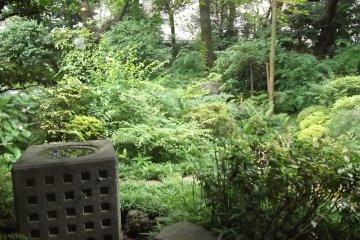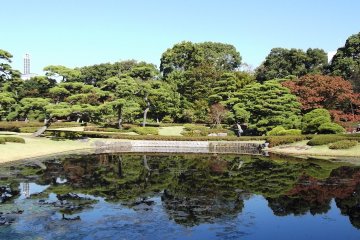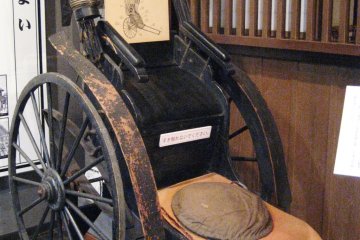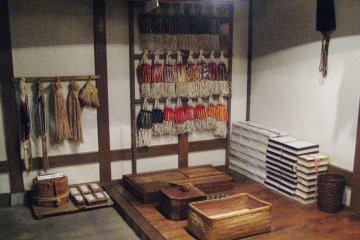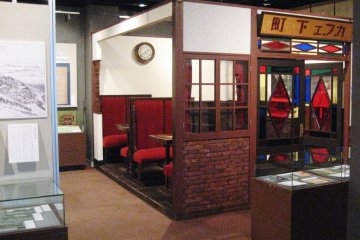Tucked away in a corner of Ueno Park, right next to Shinobazu Pond, sits the Shitamachi Museum, offering its visitors a small but perfectly formed glimpse of everyday life in Edo, the name for Tokyo until the end of the Edo period in 1868.
As you go in you will be greeted by one of the friendly volunteers who staff the museum. They run free tours in English and if you have the time, it’s worth taking one of these for the detail and personal approach that they provide. There are also leaflets in French and English available at the reception desk.
The ground floor of the museum houses two impressive life-size replica buildings. One of these is a merchant’s house, where geta (Japanese wooden clogs) were made, and the other is a tenement house where two families would have lived and worked; one of the rooms is designed as if a coppersmith lived there, selling his wares from home, while the other is set up for a mother and daughter who own a small sweet shop attached to their house. Also on this floor are an original rickshaw, hand-drawn cart, well and washing board. The impression is of a small, homely street where several small businesses thrived. A particularly nice touch is the fact that, if you remove your shoes, you can enter the houses, sit on the tatami mats and get really close to the objects. It helps bring it all to life.
Upstairs has a different feel to it. Here there is an eclectic mixture of smaller objects in display cases, as well as a replica sake bar and the entrance to a public bath. The objects are personal items such as photographs, toys and games. There is also a video display on a loop, showing the area around Ueno immediately after World War II, and again in the 1960s.
It is probably not worth making a trip especially to visit this museum, but if you are in the park and looking for something to while away an hour or so, pop in and have a wander around. At 300 yen it’s not expensive, and the warmth and interest with which you are greeted makes it more than worth the small fee.




